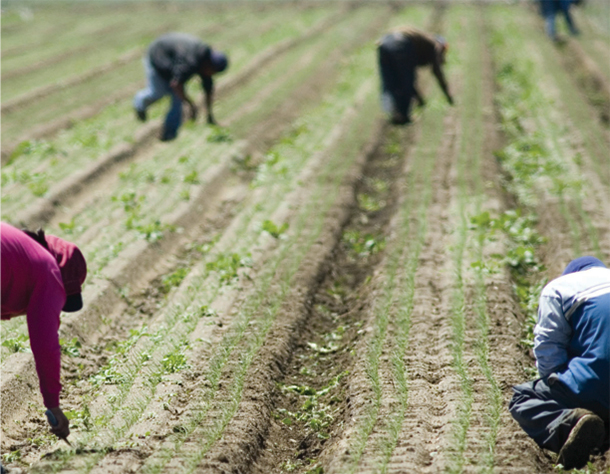Unequal access to medical coverage between seasonal and Canadian farm workers in B.C. amounts to "effective apartheid," according to a researcher who interviewed more than 200 farm workers and their employers.
Although the interviews are not new -- they were originally conducted for a WorkSafeBC-funded report between 2007 and 2009 -- additional farm worker interviews last year suggest the health and safety gap persists, said Simon Fraser University international studies and sociology professor Gerardo Otero.
Half of the interviewed workers were brought into Canada under the federal Seasonal Agricultural Workers Program, many from Mexico, the other half South Asian immigrants. Many reported barriers to seeking help for medical injuries.
"Workers feel too vulnerable to report if they're sick or injured, because continuing in the program depends on a review by their employer," said Otero, a Mexican-born academic who specializes in the political economy of agriculture and food.
Of the Mexican workers interviewed, 48 per cent agreed with the statement that their "co-workers work when they are ill because they are afraid to tell the boss," while 44 per cent of the South Asian immigrants in the study agreed.
Many of the interviewed workers also claimed they were "subject to hazardous conditions like unsafe transportation, substandard living conditions, long work hours and dangerous equipment," according to the study.
Depending on a single employer is "probably the most problematic aspect" of the federal workers' program, Otero said. "That's why we're calling for permanent residence upon arrival, so these workers can be on a level playing field with the rest of Canadian workers rather than be in a special situation of effective apartheid."
Otero's report calls for B.C. to follow Ontario's lead and allow seasonal workers to enrol immediately in Medical Services Plan coverage, rather than forcing them to wait three months into their short stint in Canada to apply, or making them rely on pay-up-front private insurance, as most currently do.
Otero also interviewed 53 farm operators and non-government organizations for the report, Citizenship and Precarious Labour in Canadian Agriculture, published today by the Canadian Centre for Policy Alternatives. It includes updated data on B.C.'s agricultural workforce and new recommendations to boost farm worker safety.
BC accident sparked rule overhaul
Farm work presents dangers regardless of one's citizenship. According to the Canadian Agricultural Injury Reporting agency, across the country 2,317 people died in agricultural incidents between 1992 and 2012.
This week, in the aftermath of a farm accident that killed three Alberta children on Oct. 13, Premier Rachel Notley's government vowed to bring farm work under occupational health and safety rules.
In B.C., a 2007 fatal farm van accident in Abbotsford led to an overhaul of the province's own protections for farm workers, including increased inspections and monitoring.
"Agriculture is one of the industries with the highest risk," Otero observed. But much of that risk could be mitigated with tighter health and safety standards and more rigid enforcement, he said.
A spokesperson for B.C. Labour Minister Shirley Bond said yesterday she would review the report and is expected to comment today. But in an Oct. 2 press release, Bond said the province is committed to ensuring occupational health and safety rules are fully upheld in the agricultural sector.
"All of us -- workers, the farming industry, WorkSafeBC and government -- share the goal of keeping British Columbia's farm workers safe," she said. "Since 2007 changes have been made that we expect will improve the safety of farm workers and all British Columbians, but we must remain vigilant and continually strive to enhance worker safety in our province."
The ministry also reported that it has fulfilled or made progress on a majority of recommendations from an inquest into the 2007 van accident, including increased surprise inspections of work sites.
"That's what they say, but they don't do it enough," Otero said in an interview yesterday. He said he believes that current regulations don't include sufficient enforcement and monitoring.
Otero's study also found a significant increase in Mexican migrant workers in B.C. in recent years. In 2003, 98 per cent of farm workers in the province were South Asian immigrants settled in Canada; by 2012 that number had dropped to half, with Mexican seasonal workers forming the other half. ![]()
Read more: Labour + Industry















Tyee Commenting Guidelines
Comments that violate guidelines risk being deleted, and violations may result in a temporary or permanent user ban. Maintain the spirit of good conversation to stay in the discussion.
*Please note The Tyee is not a forum for spreading misinformation about COVID-19, denying its existence or minimizing its risk to public health.
Do:
Do not: